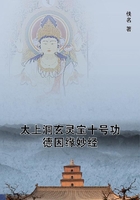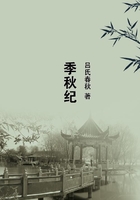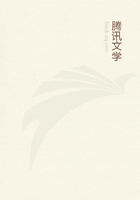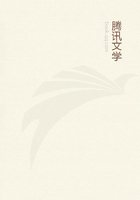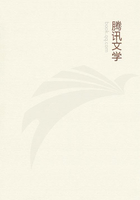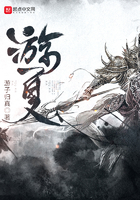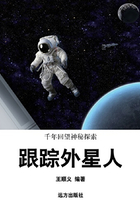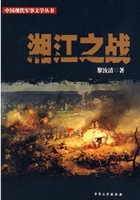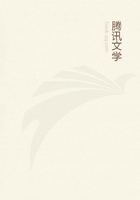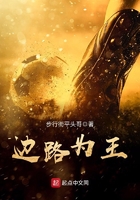The handwriting was that beautiful modern Italian which was already in use in the preceding century, and which makes the sight of one of the books of that time a pleasure.Pope Nicholas V, Poggio, Gianozzo Manetti, Niccolo Niccoli, and other distinguished scholars, themselves wrote a beautiful hand, and desired and tolerated none other.The decorative adjuncts, even when miniatures formed no part of them, were full of taste, as may be seen especially in the Laurentian manuscripts, with the light and graceful scrolls which begin and end the lines.The material used to write on, when the work was ordered by great or wealthy people, was always parchment; the binding, both in the Vatican and at Urbino, was a uniform crimson velvet with silver clasps.Where there was so much care to show honour to the contents of a book by the beauty of its outward form, it is intelligible that the sudden appearance of printed books was greeted at first with anything but favour.Federigo of Urbino 'would have been ashamed to own a printed book.'
But the weary copyists--not those who lived by the trade, but the many who were forced to copy a book in order to have it--rejoiced at the German invention.It was soon applied in Italy to the multiplication first of the Latin and then of the Greek authors, and for a long period nowhere but in Italy, yet it spread with by no means the rapidity which might have been expected from the general enthusiasm for these works.
After a while the modern relation between author and publisher began to develop itself, and under Alexander VI, when it was no longer easy to destroy a book, as Cosimo could make Filelfo promise to do, the prohibitive censorship made its appearance.
The growth of textual criticism which accompanied the advancing study of languages and antiquity belongs as little to the subject of this book as the history of scholarship in general.We are here occupied, not with the learning of the Italians in itself, but with the reproduction of antiquity in literature and life.One word more on the studies themselves may still be permissible.
Greek scholarship was chiefly confined to Florence and to the fifteenth and the beginning of the sixteenth centuries.The impulse which had proceeded from Petrarch and Boccaccio, superficial as was their own acquaintance with Greek, was powerful, but did not tell immediately on their contemporaries, except a few; on the other hand, the study of Greek literature died out about the year 1520 with the last of the colony of learned Greek exiles, and it was a singular piece of fortune that northerners like Erasmus, the Stephani, and Budaeus had meanwhile made themselves masters of the language.That colony had begun with Manuel Chrysoloras and his relation John, and with George of Trebizond.
Then followed, about and after the time of the conquest of Constantinople, John Argyropulos, Theodore Gaza, Demetrios Chalcondylas, who brought up his sons Theophilos and Basilios to be excellent Hellenists, Andronikos Kallistos, Marcos Musuros and the family of Lascaris, not to mention others.But after the subjection of Greece by the Turks was completed, the succession of scholars was maintained only by the sons of the fugitives and perhaps here and there by some Candian or Cyprian refugee.That the decay of Hellenistic studies began about the time of the death of Leo X was due partly to a general change of intellectual attitude, and to a certain satiety of classical influences which now made itself felt; but its coincidence with the death of the Greek fugitives was not wholly a matter of accident.The study of Greek among the Italians appears, if we take the year 1500 as our standard, to have been pursued with extraordinary zeal.Many of those who then learned the language could still speak it half a century later, in their old age, like the Popes Paul III and Paul IV.But this sort of mastery of the study presupposes intercourse with native Greeks.
Besides Florence, Rome and Padua nearly always maintained paid teachers of Greek, and Verona, Ferrara, Venice, Perugia, Pavia and other cities occasional teachers.Hellenistic studies owed a priceless debt to the press of Aldo Manuzio at Venice, where the most important and voluminous writers were for the first time printed in the original.
Aldo ventured his all in the enterprise; he was an editor and publisher whose like the world has rarely seen.
Along with this classical revival, Oriental studies now assumed considerable proportions.The controversial writings of the great Florentine statesman and scholar, Giannozzo Manetti (d.1459) against the Jews afford an early instance of a complete mastery of their language and science.His son Agnolo was from his childhood instructed in Latin, Greek and Hebrew.The father, at the bidding of Nicholas V, translated the whole Bible afresh, as the philologists of the time insisted on giving up the 'Vulgata.'
Many other humanists devoted themselves before Reuchlin to the study of Hebrew, among them Pico della Mirandola, who was not satisfied with a knowledge of the Hebrew grammar and ScriptureS, but penetrated into the Jewish Cabbalah and even made himself as familiar with the literature of the Talmud as any Rabbi.
Among the Oriental languages, Arabic was studied as well as Hebrew.The science of medicine, no longer satisfied with the older Latin translations of the great Arab physicians, had constant recourse to the originals, to which an easy access was offered by the Venetian consulates in the East, where Italian doctors were regularly kept.
Hieronimo Ramusio, a Venetian physician, translated a great part of Avicenna from the Arabic and died at Damascus in 1486.Andrea Mongaio of Belluno lived long at Damascus for the purpose of studying Avicenna, learnt Arabic, and emended the author's text.The Venetian government afterwards appointed him professor of this subject at Padua.

